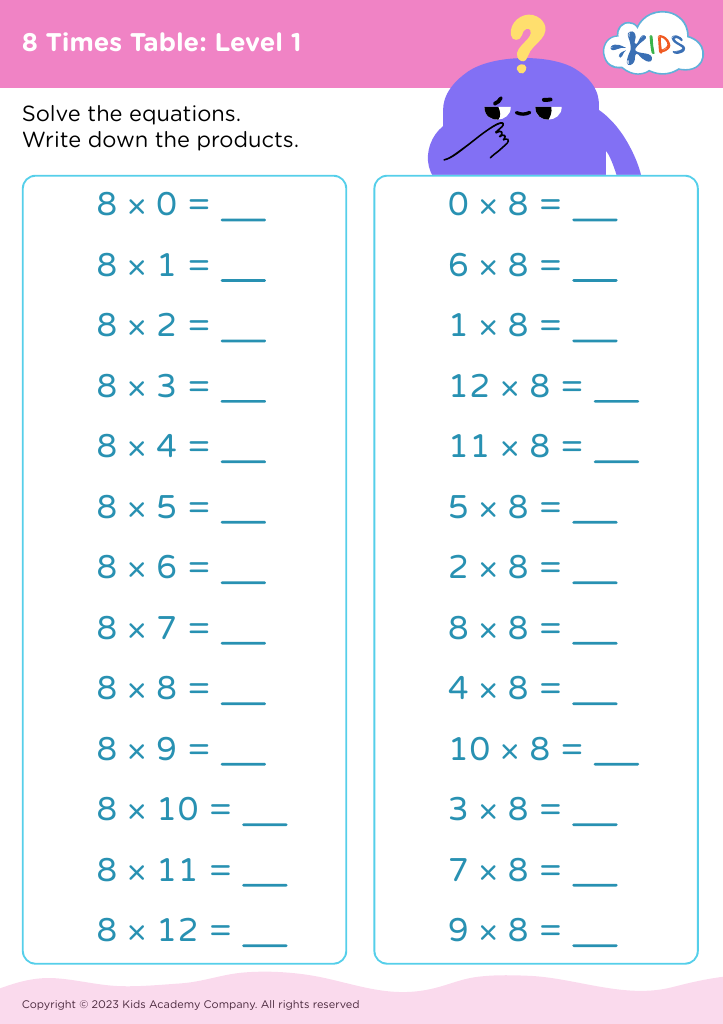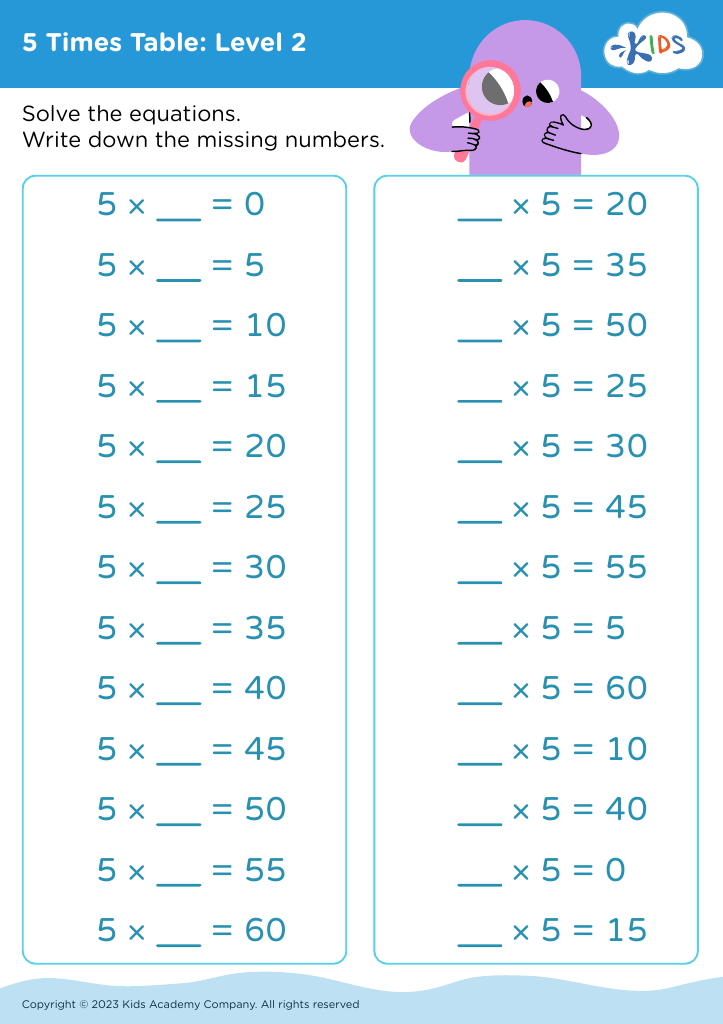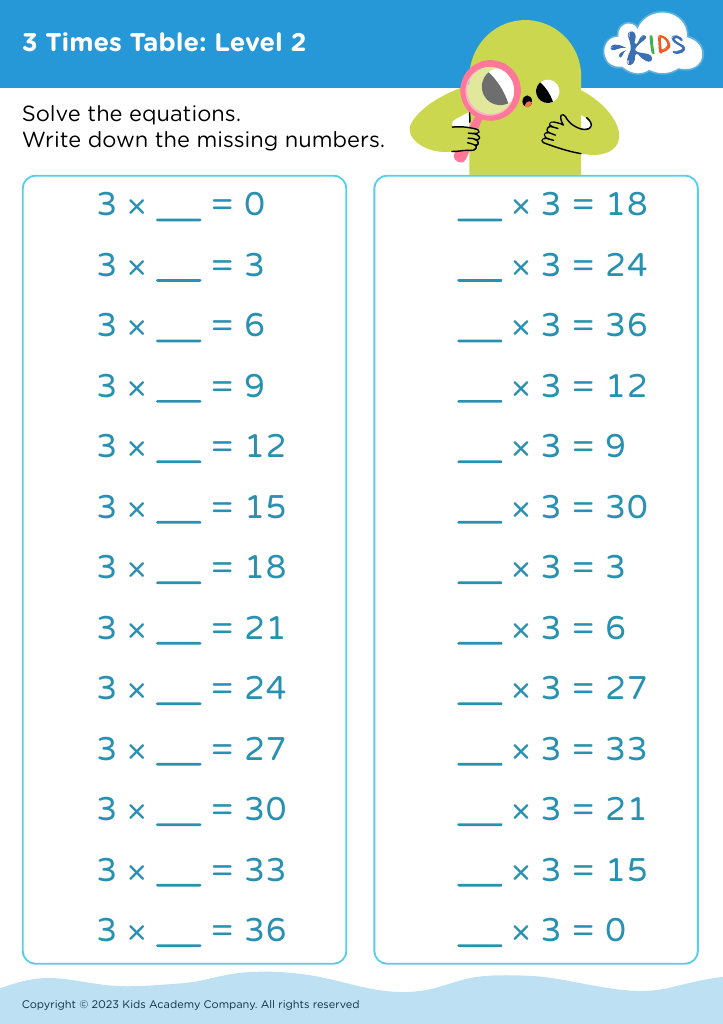Mental arithmetic skills Times Tables Worksheets for Ages 3-8
3 filtered results
-
From - To
Unlock your child's potential with our engaging Mental Arithmetic Skills Times Tables Worksheets, specifically designed for children aged 3-8. These interactive resources focus on developing foundational math skills through fun and stimulating activities. Each worksheet enhances your child's ability to quickly recall multiplication facts, fostering confidence in their mathematical capabilities. Our curriculum-aligned worksheets cater to various learning styles and are perfect for both classroom and home use. Encourage independent learning and improve mental agility while making math enjoyable. Say goodbye to math anxiety and watch your young learners thrive as they master their times tables effortlessly! Discover the joy of learning today!
Mental arithmetic skills, particularly in mastering times tables, play a crucial role in the development of young learners aged 3-8. These foundational skills foster mathematical fluency, enabling children to solve problems quickly and confidently. When children are comfortable with their times tables, they are better equipped to tackle more complex mathematical concepts as they advance in their education.
Moreover, early development of mental arithmetic can boost children’s overall confidence in math. It creates a positive learning experience where students feel capable and more engaged in classroom activities. A solid grasp of times tables supports not only mathematics but also critical thinking and problem-solving skills essential in various life scenarios.
Additionally, early intervention helps identify learning gaps, allowing teachers and parents to provide targeted support where necessary. Collaborative reinforcement of these skills at home and school can create a cohesive learning environment that nurtures an appreciation for mathematics.
Finally, as times tables form the basis of daily tasks, such as estimating costs or measuring ingredients, proficiency in mental arithmetic significantly contributes to children's practical life skills. Therefore, fostering mental arithmetic from an early age is vital for long-term academic success and the development of lifelong skills.
















